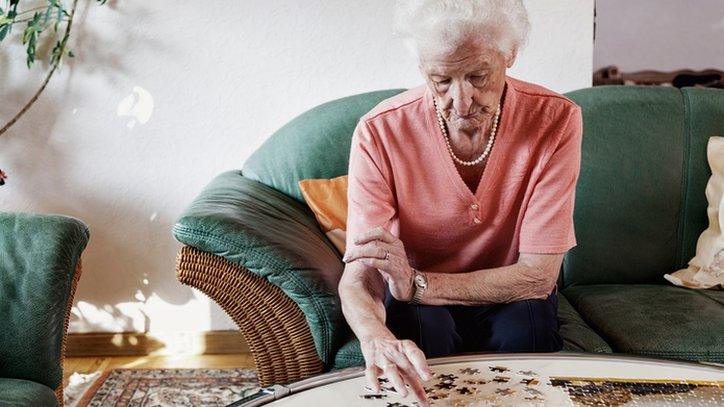'Medical opinions ignored' by NHS payment assessor, workers say
- Published
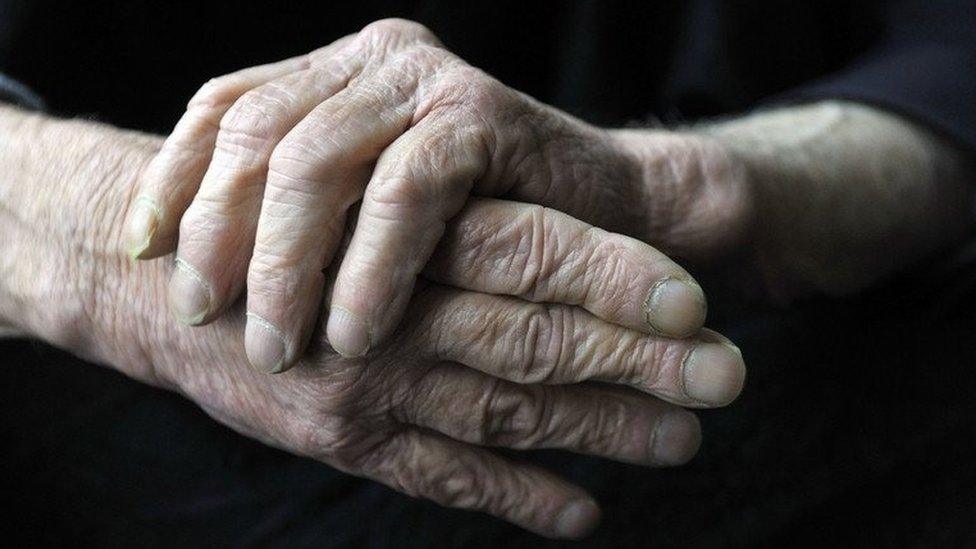
The NHS pays for long-term support and care for severely ill patients using national criteria
Medical opinions have been ignored in the assessment of NHS payments to patients receiving care, it is claimed.
Three health workers said an assessor organisation discounted medical views so some patients were denied NHS care.
Norman Lamb MP said England-wide data obtained by the BBC showed a "regional disparity" and was "an injustice".
However the assessor organisation, Arden and Greater East Midlands CSU, says it follows national guidelines to decide on payments.
Under national criteria, the NHS pays for long-term support and care if a patient's condition is severe enough.
However, BBC Inside Out East has found a wide difference among clinical commissioning groups (CCGs) in England in the percentage of patients rejected following assessment for continuing health care (CHC).
Between July 2016 and July 2017, Birmingham South and Central CCG rejected 75% of its new CHC assessments, Manchester CCG turned down only 17% of assessments, while Tameside and Glossop CCG only rejected 5% of those assessed.
All assessors - of which there about half a dozen covering England - should use the same criteria.
Three health workers told the BBC that one of the main assessor organisations, Arden and Greater East Midlands CSU (Commissioning Support Unit), sometimes ignored medical opinions in assessments so patients could not obtain NHS care.
One worker told the BBC: "There has been bullying at the meetings - attempts to ridicule people who are there who have a professional opinion.
"They ignored what professionals have said and changed what professionals have said. The concern is that this puts patients at risk."
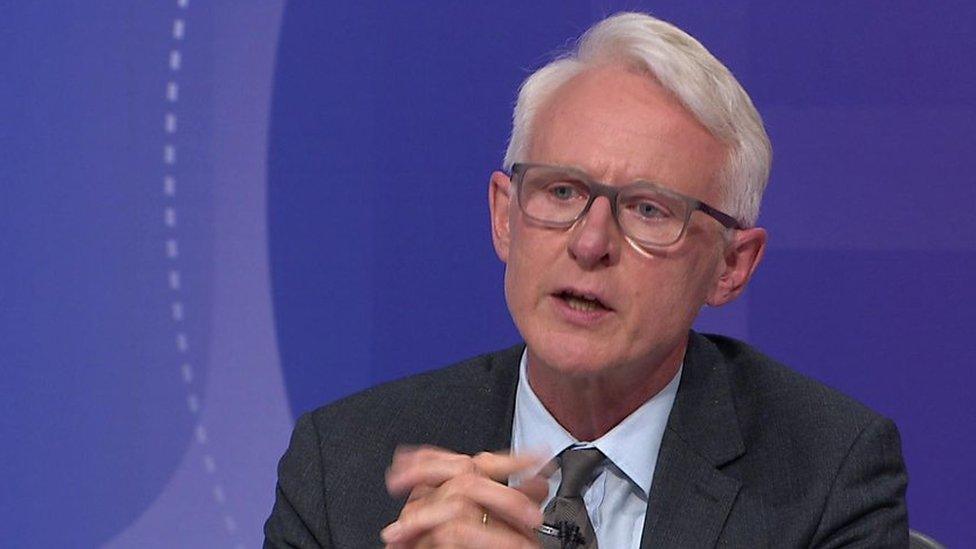
North Norfolk MP Norman Lamb called allegations of ignoring medical opinions "very disturbing"
North Norfolk MP Mr Lamb, whose Liberal Democrat constituency includes North Norfolk CCG where 73% of cases assessed were turned down, said the disparity and the allegations of medical opinions being ignored were "very disturbing".
"The regional disparity amounts to an injustice between individuals with the same conditions which can't begin to be justified," said the former health minister.
But Alfonzo Tramontano, chief nurse at Arden and Greater East Midlands CSU, said: "There are strict national guidelines for what constitutes continuing healthcare.
"Importantly, there is no reason why we would ever want to do anything other than assess an individual's needs correctly.
"We carry out each assessment using the national guidelines and make recommendations to an expert CCG panel, and we have never put pressure on our nurse assessors to do anything other than assess each individual's health care needs correctly."
An NHS England spokesman said taxpayers "rightly expect" care to be taken before public money is handed out.
"It's a fact that the majority of people put through a continuing healthcare assessment turn out not to need it," he said.
"While funding decisions on CHC cases are taken by local health bodies, there is now a far more consistent approach than ever before since the launch of the national eligibility framework."

Case study: Care for wife
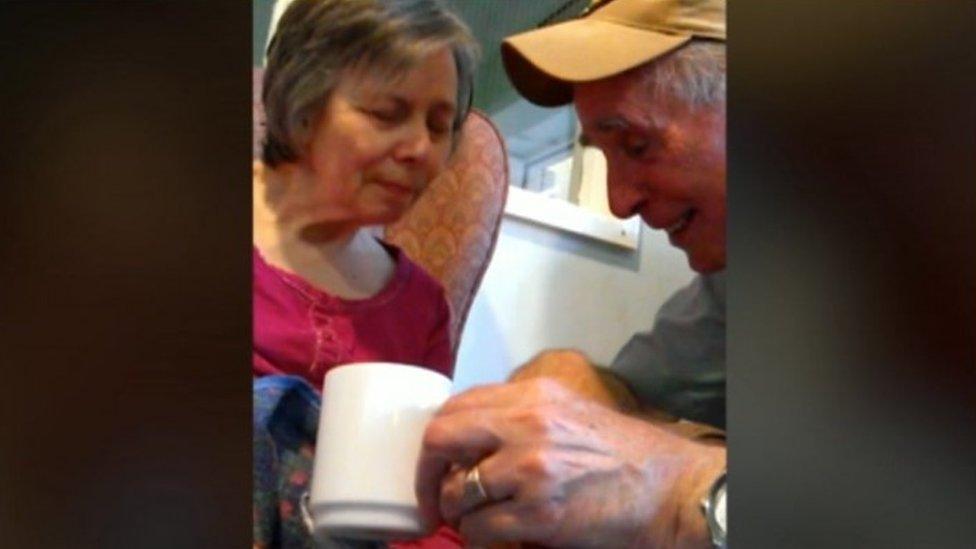
John Gallagher, 78, had NHS funding for the care for his wife Diane withdrawn three times
Among those receiving NHS care was nursing home resident Diane Gallagher, 77, who had Alzheimer's disease.
Her husband, John Gallagher, 78, who lives in Northampton, said funding was withdrawn three times, but every time he argued with the authorities and got it back.
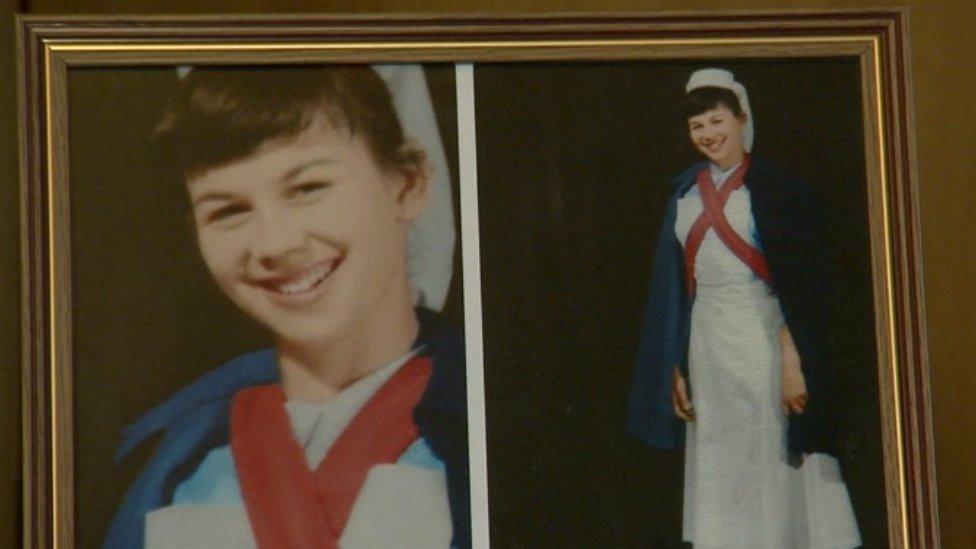
Diane Gallagher had worked as a nurse
Talking about the most recent time NHS payment was rejected, Mr Gallagher said he was "totally gobsmacked", adding by that point his wife couldn't walk, stand, talk or feed herself.
In August Mrs Gallagher died, but her husband still faces having to pay the bill for her final weeks of care. He insists the NHS should pay.

BBC Inside Out East is broadcast at 19:30 BST on Monday.
- Published20 July 2017
